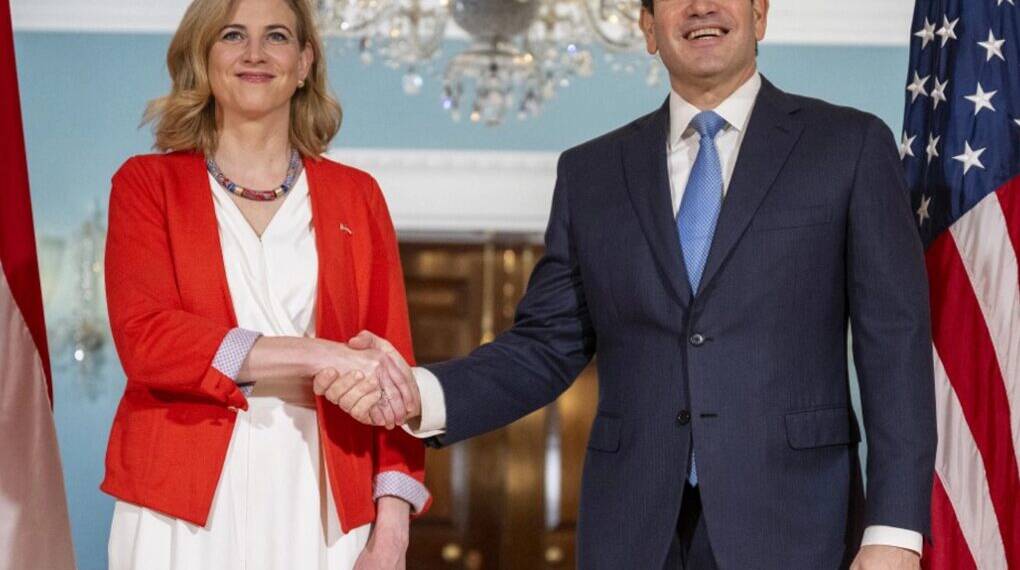In a significant departure from decades of constitutional neutrality, Austria’s Foreign Minister Beate Meinl-Reisinger has opened the door to a national debate on NATO membership. Her bold comments mark a potential shift in Austria’s foreign policy that has remained largely unchanged since the Cold War.
“Neutrality Alone Will Not Protect Us”
Speaking to German media outlet Die Welt, Meinl-Reisinger stated bluntly:
“Neutrality alone does not protect us.”
This striking declaration comes amid rising security concerns across Europe, driven largely by Russia’s ongoing war in Ukraine. The Foreign Minister, who leads the liberal NEOS party and is part of a coalition government formed in March 2025, emphasized that Austria must not be naive in the face of escalating global threats.
While acknowledging that there is currently no parliamentary or public majority in Austria supporting NATO membership, she argued that the debate itself is necessary and “fruitful” given the changing geopolitical landscape.
A Legacy of Neutrality Under Pressure
Austria’s neutrality, formally adopted in 1955, was a cornerstone of its post-World War II sovereignty deal. The country pledged to remain non-aligned militarily in exchange for the withdrawal of occupying Allied forces, including the USSR. That neutrality was enshrined in Austria’s constitution and has remained politically untouchable for decades.
Yet, Russia’s invasion of Ukraine in 2022 has upended that legacy. Austria, although not a NATO member, has increasingly aligned with EU foreign policy on security matters and has participated in several EU and NATO-led missions in Kosovo, Bosnia, and Afghanistan.
In February 2025, NATO’s Allied Joint Force Command Brunssum formally recognized Austria’s 30-year contribution to alliance missions through the Partnership for Peace (PfP) program.
Lessons from Finland and Sweden
Austria’s reassessment mirrors the historic shift made by Finland and Sweden, both of whom abandoned long-held neutrality in response to the Russian invasion. Finland became NATO’s 31st member in April 2023, and Sweden followed in March 2024.
Meinl-Reisinger acknowledged this trend, stating:
“There has already been a growing change among traditionally neutral European countries following Russia’s full-scale invasion.”
These decisions, once seen as unimaginable, have fundamentally altered the European security map—and could now influence Austria’s own trajectory.
Russia’s Reaction and Strategic Concerns
Russia has not remained silent. Moscow has repeatedly accused Vienna of “abandoning neutrality” and aiding the West’s agenda. On July 24, Russian Foreign Ministry spokeswoman Maria Zakharova reiterated these claims, citing Austria’s role in the transit of Western arms to Ukraine.
Despite such warnings, Meinl-Reisinger maintained a hard stance on the Kremlin. She dismissed the idea of appeasement and criticized former U.S. President Donald Trump for allegedly offering Crimea and eastern Ukrainian regions to Putin “on a silver platter” while ruling out NATO membership for Ukraine.
“Ukraine wants peace. Russia doesn’t,” she said firmly.
A New Chapter for Austrian Security?
Austria’s potential shift on neutrality underscores a broader European security awakening. With global defense spending rising and geopolitical fault lines deepening, Vienna may find itself at a crossroads.
Meinl-Reisinger concluded:
“We can’t sit back and say: If we don’t hurt anyone, no one will hurt us – that would be naive.”
While NATO membership remains uncertain, what is clear is that Austria is no longer taking its neutrality for granted.
What’s Next?
A public debate on Austria’s security posture is likely to intensify in the coming months.
Parliamentary discussions and public opinion polling may influence future moves toward or away from NATO.
Austria’s evolving role could have wider implications for European defense integration and transatlantic relations.
Austria’s neutrality has long been a symbol of peace and sovereignty. But in a world increasingly shaped by military aggression and shifting alliances, can it still guarantee safety? The debate has just begun.








